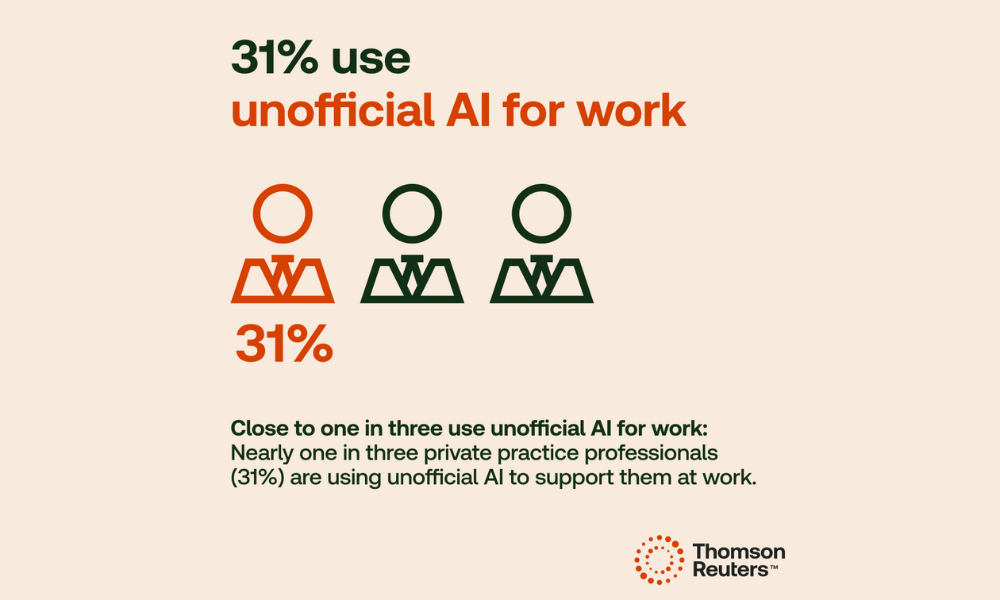
Thomson Reuters shares Australian edition of report on law, tech, and AI

Thomson Reuters has released the Australian edition of its new report titled “Tech, AI and the Law 2024,” which explored the trends transforming work practices within the legal sector and the priorities driving the future of legal innovation.
The report suggested that generative artificial intelligence (GenAI) has been reshaping roles of legal professionals, who are looking to legal technology to improve their efficiency and to free up their time for professional development, wellness, mental health, and strategic initiatives fostering growth and competitiveness.
A survey covering 869 legal professionals in Australia made the following findings, among others:
“As discourse continues about how longstanding billing practices will be affected by new ways of working, a GenAI powered legal industry can potentially reshape legal roles,” said Carl Olson, interim managing director for Asia and emerging markets at Thomson Reuters, in the report.
“GenAI is making way for opportunities that enable lawyers across all practice areas and years of experience to engage in more strategic work,” Olson added in the report.
Olson warned that the unauthorised use of AI could increase the risk of data breaches and could potentially lead to unintended consequences. Olson urged legal leaders to ensure that they provide their teams, firms, and organisations with appropriate access to trusted and ethical AI.
GenAI powered legal tools, according to the report, are becoming more widely adopted for the purposes of doing legal research, summarising information, drafting documents, and performing basic administrative tasks and low-level processing work.
Concerns about adopting GenAI tools broach the areas of cybersecurity, privacy, and the accuracy of their output, the report said.
The report’s first part focuses on private practice. Legal tech adoption in this area is steady, with investments rising year-on-year, the report said. Law firms surveyed identified keeping up with clients’ shifting expectations and talent attraction as challenges.
The second part explored AI’s disruption of the billable hour and examined how legal services are structured and priced. The report revealed that GenAI has challenged traditional ways of working, including by speeding up specialised legal work.
The third part was about corporate counsel. Legal technology has revolutionised legal teams in Australia, with coveted legal technologies including document drafting solutions, document automation solutions, and GenAI legal assistants, the report said.
Those interested can learn more here.